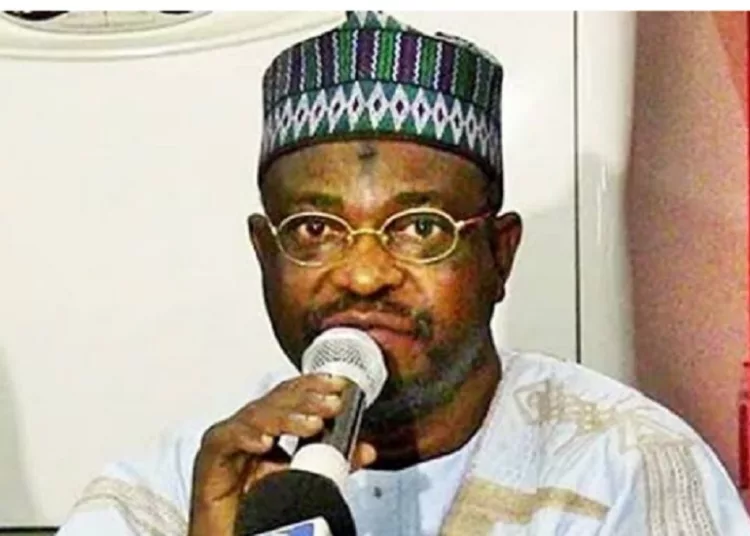The recent passing of former Speaker of the House of Representatives, Ghali Umar Na’Abba, at the age of 65 represents a great loss for Nigeria.
Na’Abba served as Speaker from 1999 to 2003, a pivotal time in Nigeria’s return to democracy after decades of military rule.
As the first Speaker of the House in the Fourth Republic, Na’Abba played a crucial role in establishing the National Assembly as an independent and assertive branch of government.
A tribute to the former speaker by Rimamnde Kwewum, a member of the House of Representatives between 2015 and 2023, who once worked as an aide to the speaker, highlighted Na’Abba’s role in integrating legislative aides into the National Assembly against the preference of civil servants.
Born on September 27, 1958 in Tudun Nufawa, Kano City, Na’Abba represented Kano Municipal Federal Constituency between 1999 and 2003. Literally, thousands of members passed through the House of Representatives.
Some spent single terms while others were there for three to four terms, but most have been forgotten or worse, their names were never known except by a few members of their constituency.
That cannot be said about Ghali Na’Abba whose single term in the House of Representatives was not only impactful but saw him elected as speaker.
Young Nigerians would only remember the legislative arms of government at both the national and state levels as being rubber stamps to the executives.
It was always like that, even in the early days of the fourth republic. Na’Abba learnt the ropes quickly, managing to consolidate power as the head of the lower house of parliament and keep the executive at arm’s length.
Contrast that with the frequent change in leadership and executive meddling in the affairs of the Senate within the same period of time.
Between 1999 and 2003, Nigeria witnessed the election of at least three Senate Presidents after the first two were impeached.
It was no secret that the impeachment of both Evans Ewerem and Chuba Okadigbo were in part instigated by then President Olusegun Obasanjo.
Before he was replaced by Anyim Pius Anyim, Okadigbo as Senate President made concerted efforts to assert the independence of the Senate and the National Assembly over the overbearing influence of the executive arm of government.
The result was an unstable Senate, which the president felt needed to be tamed.
At least from the narratives of the former Speaker and many of his colleagues, Obasanjo did make several moves to have him impeached, but they all failed.
In fact, it was the pressure from the threat of impeachment initiated by the Ghali Na’Abba led House of Representatives that drained President Obasanjo.
The House in 2002 gave 17 reasons why it wanted to impeach President Obasanjo. The president was accused of being in breach of the constitution for failing to implement the budgets he himself signed into law.
It took the intervention of the Council of State to get Na’Abba and the leadership of the House of Representatives to shelve the planned impeachment of Obasanjo.
As fate would have it, Na’Abba failed to get re-elected into the House of Representatives during the 2003 general elections and the House was never the same without him.
No doubt, the independent streak exhibited by Na’Abba in running the House of Representatives also showed in how he played politics, particularly in his home state of Kano.
While most elected officials from the state aligned themselves with one of the three individuals that have governed Kano in the last 24 years, Ghali Na’Abba carved his own path, both in and outside of office.
Politicians aren’t made like that anymore. In the end, what he really stood for was politics based on principles. And if other politicians won’t miss him, Nigeria already does.
As we mourn the passing of this principled politician, let us honor his legacy by cultivating more leaders of his courage and conviction.
Nigeria’s future depends on those willing to put aside narrow interests to pursue the common good. Na’Abba represented the best of public service in difficult times. May the principles he personified continue to guide our democracy.





